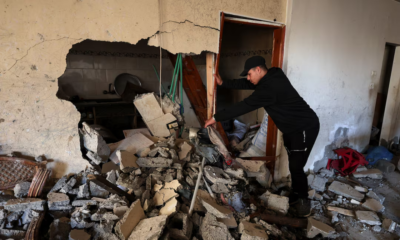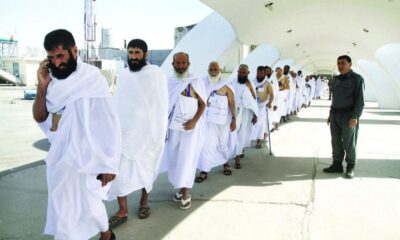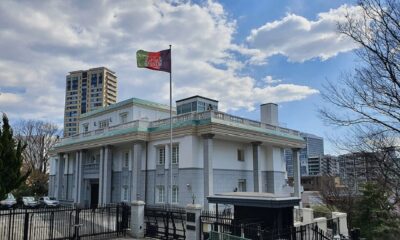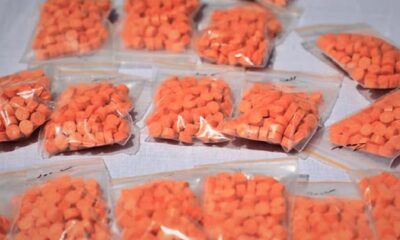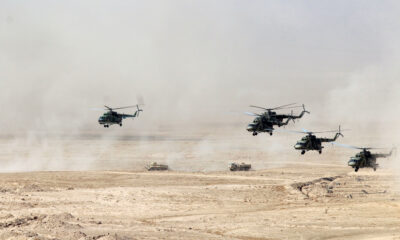Latest News
NEPA and Kabul municipality taken to task over pollution problem

Afghanistan’s Meshrano Jirga (Upper House of Parliament) on Sunday summoned National Environmental Protection Agency (NEPA) officials, and Kabul municipal officials to answer questions over the high levels of pollution in Kabul city among other issues.
According to senators, government is responsible for taking practical steps to reduce the pollution in Kabul. Without control, Kabul residents are exposed to various diseases, senators said.
“The situation has raised concerns. Some hotels and bakeries use low-quality products. Why are you not managing the problems,” said Farahnaz Pamiri, a senator.
Buildings, without proper planning permission were also raised and concerns voiced.
“The buildings that were built without any authorization and the use of low-quality materials has affected the environment badly. Government should stop these problems,” said Mohammad Akbari, another senator.
NEPA, however, acknowledged the pollution problem and said government institutions are implementing recommended measures but very slowly.
“We have a long-term plan. We have identified 52 causes of pollution. The government institutions implement the recommended measures so slowly,” said Ezatullah Siddiqi, deputy head of NEPA.
Kabul’s Mayor Daoud Sultanzoy, meanwhile said that in order to fight pollution, the public needs to cooperate as 30 percent of pollution is caused by members of the public.
“As we investigated, 200 factory buildings out of 600 have filters and 149 others installed filters last year. We monitor buildings seriously. We will ask police for their cooperation if needed,” said Sultanzoy.
Senators said government should also stop the practice of importing low-quality fuel so as to reduce the level of air pollution in Kabul city.
Latest News
Afghanistan granted 30,000 Hajj quota for 2026

Noor Mohammad Saqib, Minister of Hajj and Religious Affairs, announced on Saturday that Afghanistan has secured a quota of 30,000 for the 2026 Hajj pilgrimage, and that this quota has been distributed transparently and fairly among Hajj applicants across the country.
Speaking at a press conference, Saqib said that the cost for each pilgrim from Afghanistan to perform next year’s Hajj has been set at 266,400 AFN, which is a reduction of 15,690 AFN compared to the previous period.
According to Saqib, the total expenses for the Hajj process have been set at 7,818,307,200 AFN.
He stated that separate quotas have also been determined for Mujahideen and Afghan migrants in Iran, Pakistan, and other countries, and that Saudi Arabia has pledged to allocate a larger quota to Afghanistan in the future.
He added that after the Islamic Emirate came to power in Afghanistan, there were 87,104 Hajj applicants who had previously registered across the country. He said that this year the majority of Afghanistan’s allocated quota was given to these applicants.
The Minister of Hajj also emphasized that contracts have been signed with Ariana Airlines and Kam Air to transport pilgrims to Saudi Arabia.
Latest News
Afghan Embassy in Japan suspends operations
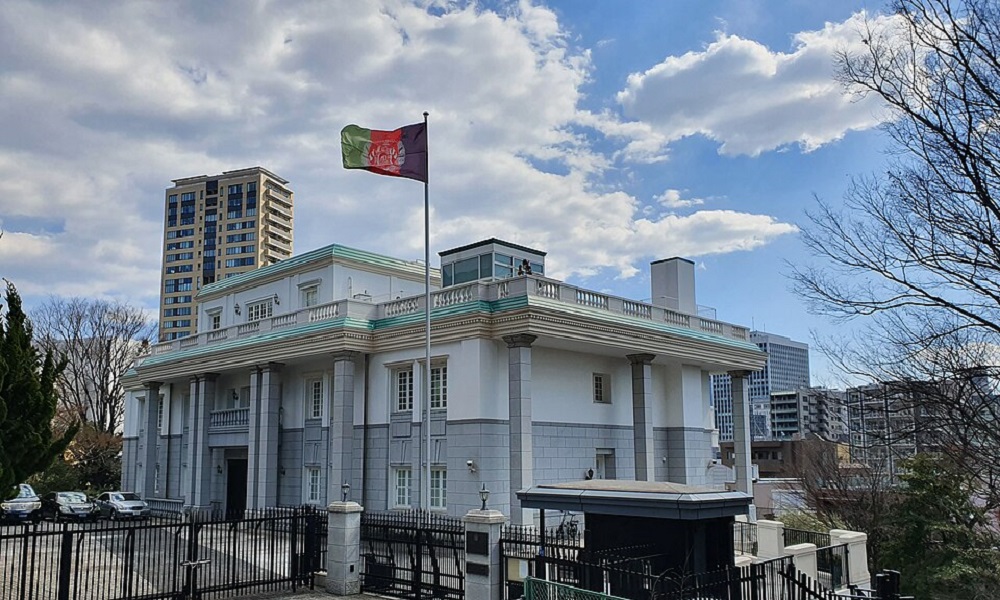
Shida Mohammad Abdali, the ambassador of the former Afghan government in Japan, has announced that the activities of the embassy have been suspended as of today, Saturday.
In a statement, Abdali said that today was the last day of the Afghanistan Embassy’s operations in Tokyo and that the embassy has officially been handed over to a delegation from the Japanese Ministry of Foreign Affairs.
Until now, the Afghanistan Embassy in Japan had been operating under the name of the former government, and its ambassador had been appointed by the former Afghan administration.
Earlier, the embassy had announced that its activities would be suspended from January 31, 2026.
Latest News
UN report warns of shift toward synthetic drugs in Afghanistan

The United Nations has warned that drug use patterns in Afghanistan are shifting away from traditional narcotics toward synthetic drugs and the misuse of medical substances, according to a new report released by the UN Office on Drugs and Crime (UNODC).
The report, the third and final volume of the National Drug Use Survey in Afghanistan, found that cannabis and opium remain the most commonly used substances, accounting for 46 percent and 19 percent of drug consumption, respectively. However, it highlights a growing use of synthetic drugs, with so-called “K” tablets making up 11 percent and methamphetamine, commonly known as crystal meth, accounting for 7 percent.
The survey was conducted by UNODC with financial support from the United Nations Development Programme (UNDP). It also points to the heavy economic burden drug use places on Afghan households, noting that the cost of substances such as methamphetamine can consume a substantial share of a daily wage earner’s income.
Respondents identified poverty, unemployment, physical pain, psychological stress and family problems as the main factors driving drug use. UN officials emphasized that addressing the issue requires integrated responses, including treatment and harm-reduction services alongside primary healthcare, psychosocial support and social protection measures.
The report also highlights significant gaps in access to drug treatment services, particularly for women, whose access remains considerably lower than that of men.
-

 Sport4 days ago
Sport4 days agoAFC Futsal Asian Cup 2026: Day One Review
-

 Sport4 days ago
Sport4 days agoAfghanistan’s Mahdi Norouzi ruled out of AFC Futsal Asian Cup due to injury
-

 Sport4 days ago
Sport4 days agoScotland name Afghanistan-born Zainullah Ihsan in T20 World Cup squad
-

 Sport3 days ago
Sport3 days agoAfghanistan shine on Day Two of AFC Futsal Asian Cup Indonesia 2026
-
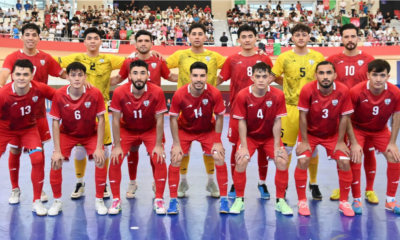
 Sport2 days ago
Sport2 days agoAfghanistan eye second straight win ahead of Malaysia clash at AFC Futsal Asian Cup
-
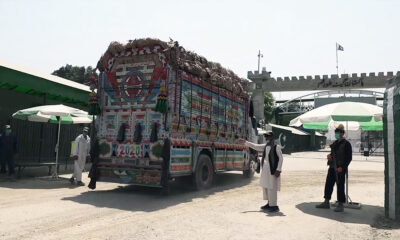
 Business4 days ago
Business4 days agoAfghanistan’s exports drop sharply in December 2025: World Bank
-
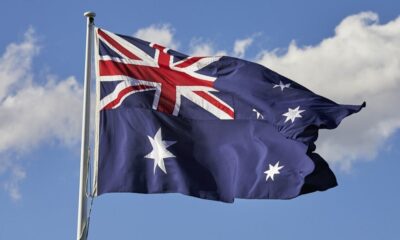
 Latest News2 days ago
Latest News2 days agoAustralia announces $50 million in new humanitarian aid for Afghanistan
-
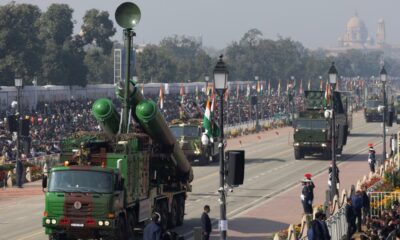
 Regional5 days ago
Regional5 days agoEU and India move toward closer defence ties amid shifting global security landscape


